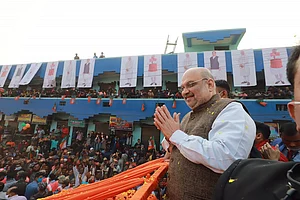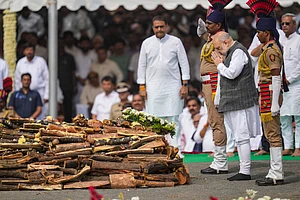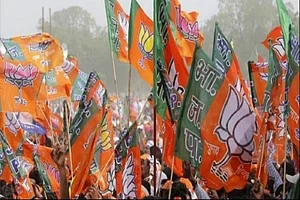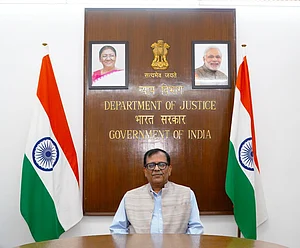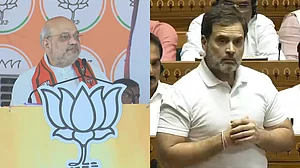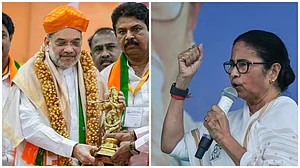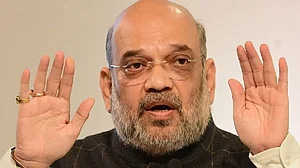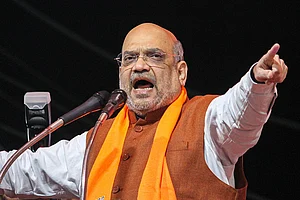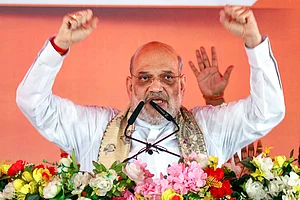
Name:Amit Shah
Amit Shah, is a prominent Indian politician currently serving as the Minister of Home Affairs and the Minister of Cooperation of India. Known for his close association with Prime Minister Narendra Modi, Shah has played a pivotal role in the Bharatiya Janata Party's (BJP) recent political strategies and successes. His political journey, marked by strategic acumen and organizational prowess, reflects a career built on meticulous planning and grassroots mobilization. He has also served as the chairman of the National Democratic Alliance.
Amit Anil Chandra Shah hails from a Gujarati Hindu Baniya family, which significantly influenced Mansa, Gujarat. His father was a prosperous businessman who dealt in PVC pipes. Shah completed his schooling in Mehsana and moved to Ahmedabad for higher education, where he graduated with a BSc in Biochemistry from CU Shah Science College. Even during college, Shah was deeply involved with the Rashtriya Swayamsevak Sangh (RSS), beginning a lifelong commitment to the organization and its ideals.
During his college days, Shah's formal political career began with his involvement in the Akhil Bharatiya Vidyarthi Parishad (ABVP), the student wing of the RSS. He joined the BJP in 1987, shortly before Narendra Modi joined the party. His early political work focused on strengthening the party's presence in Gujarat, mainly through grassroots mobilization and strategic planning.
He played a crucial role in various electoral campaigns, notably managing L.K. Advani's campaign during the 1991 Lok Sabha elections in Gandhinagar, which laid the groundwork for his deeper involvement in national politics.
In 1997, Shah was elected to the Gujarat Legislative Assembly from Sarkhej, marking the beginning of his legislative career. He was a critical figure in the BJP's dominance in Gujarat, particularly under Modi's chief ministership starting in 2001. Shah held multiple portfolios in the Gujarat government, including Home, Law and Justice, and Transport. His tenure was noted for aggressive policy measures and a focus on law and order.
Shah's national political profile rose significantly when he was appointed BJP's person in charge of Uttar Pradesh during the 2014 Lok Sabha elections. Under his watch, the BJP achieved an unprecedented victory, winning 73 out of 80 seats in the state. This success catapulted him to the position of BJP President later that year, in which he served until 2020.
Under Shah's leadership as BJP President, the party expanded its footprint across India, winning a series of state elections and consolidating its base. His strategies were often lauded for their effectiveness but were sometimes criticized for being polarizing.
2019 Shah was appointed Minister of Home Affairs in Modi's cabinet. His tenure has been marked by significant policy decisions, including the controversial abrogation of Article 370, which revoked the special status of Jammu and Kashmir. Shah has also been a vocal advocate for the National Register of Citizens (NRC) and the Citizenship Amendment Act (CAA), which have sparked nationwide debate and protests.
Amit Shah remains a central figure in Indian politics, particularly as the BJP prepares for future electoral challenges. His impact on the party's strategies and India's political landscape is significant, reflecting his deep commitment to his party and its ideology. As India approaches more elections, Shah's role as a strategist and leader will undoubtedly be crucial in shaping the country's political future.

